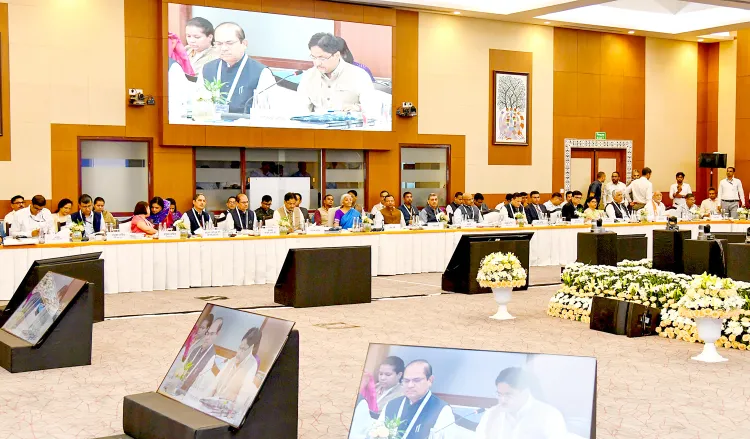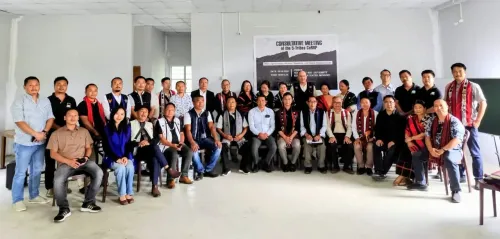Will the Opposition's Criticism of GST Reforms Affect the Centre?

Synopsis
Key Takeaways
- GST reforms introduce two main tax slabs.
- Essential goods are expected to become cheaper.
- Opposition voices concerns about real impact on citizens.
- Political motivations questioned by critics.
- Government aims for economic growth through increased disposable income.
New Delhi, Sep 4 (NationPress) The Opposition parties criticized the Centre on Thursday regarding the newly introduced GST reforms, asserting that these modifications will fail to deliver genuine relief to the average citizen. They urged the government to rethink its approach to the updated tax brackets.
The GST Council sanctioned extensive reforms in India’s indirect tax structure on Wednesday, streamlining the number of tax slabs and lowering rates on various essential goods and services.
Now, only two main tax slabs will be in effect—5 percent and 18 percent—alongside a higher 40 percent rate for sin goods. Officials claimed this revised framework would increase disposable income for the average person, with the government anticipating that this would reinvigorate the economy and stimulate growth.
Many items, such as groceries, footwear, textiles, fertilizers, and renewable energy products, are set to become more affordable.
Goods that previously faced a 12 percent and 28 percent tax rate will largely transition into the two primary slabs, thereby alleviating some financial strain on households.
Congress leader Rakesh Sinha charged the government with political opportunism.
In a statement to IANS, he remarked, "The Congress had previously advised the Prime Minister to adjust the GST slabs. For 11 years, the Prime Minister collected GST even on shrouds. It was only when he noticed his vote bank dwindling, particularly ahead of the elections in Bihar, that he decided to amend the GST slabs."
Uttar Pradesh Congress national media panellist Surendra Rajput dismissed the reforms, claiming they would not benefit the nation while accusing the Centre of undermining India's MSME sector by increasing trade with China.
"The BJP government has transformed India into 'Assembled in India' instead of 'Make in India'. Neither the nation nor our MSME sector has gained from 'Assembled in India'. The Prime Minister is poised to double trade with China," Rajput asserted.
"Our MSME sector and small businesses have already suffered tremendously due to Chinese imports. From chandeliers to idols of Lord Ganesha, everything is sourced from China. Now, they are expanding imports even further. Will they face a loss of $200 billion instead of $100 billion now? The MSME sector will be further weakened by the influx of imports from China," he added.
Samajwadi Party spokesperson Fakhrul Hasan Chaand also criticized the government for its indifference to rising prices of essential commodities.
"What is the current price of flour? What about oil and rice? Who can fill their stomach with shampoo? When will petrol and diesel be included under the GST framework? The BJP once opposed GST but now promotes GST reforms," he asserted.
"The Samajwadi Party believes that GST is a tax that traders merely collect and deposit, yet it ultimately comes from the common people, whether they are rickshaw pullers, affluent individuals, or the economically disadvantaged. The BJP has solely focused on inflating costs. They have only congratulated themselves regarding GST. The public is not interested in 'Mann ki Baat'; they want their concerns addressed. The Prime Minister must pay attention to the people's voices," Chaand added.
He labeled the reforms as politically motivated, stating, "Only the BJP seeks political gain, to self-congratulate, to commend their ministers, and to praise their government. However, the people responded in the Lok Sabha elections, and they will respond again in the future."
Chaand also accused the ruling party of being detached from pressing issues.
"The BJP is far removed from 'Roti, Kapda, Makaan' and is instead focused on subjects like Hindu, Muslim, temples, mosques, love jihad, etc.," he concluded.









